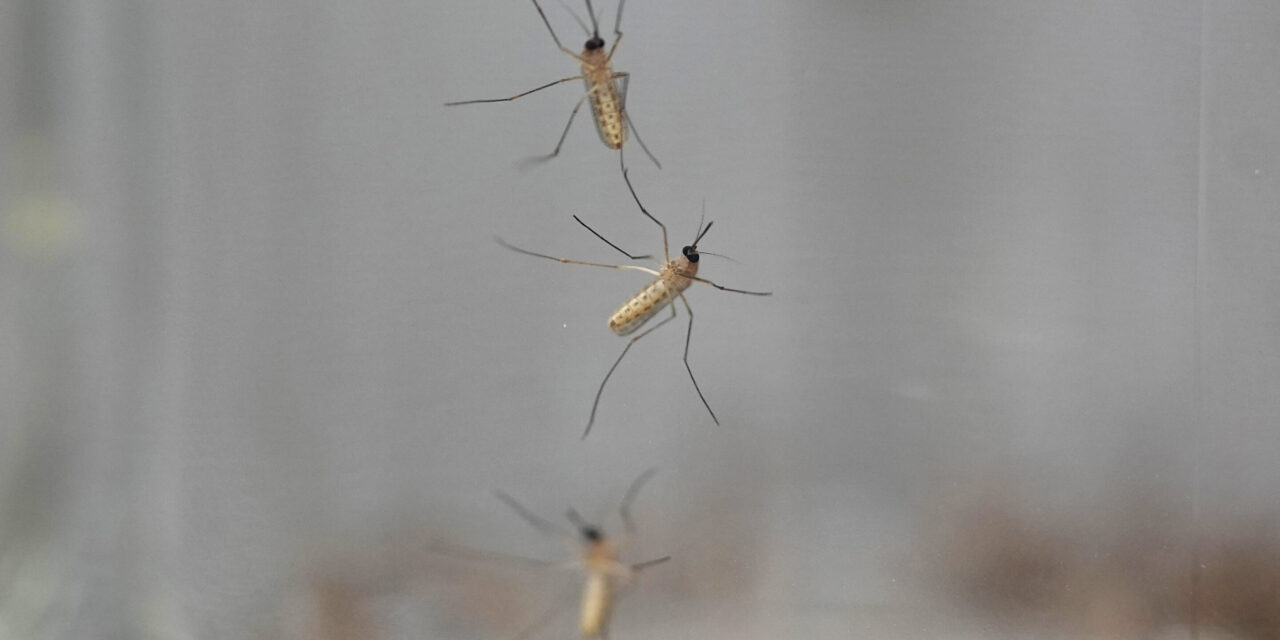Researchers from UC Santa Barbara have uncovered a fascinating and unexpected truth about mosquito mating behavior: male mosquitoes are totally uninterested in females if they can’t hear their wingbeats. This discovery could have significant implications for controlling mosquito populations, particularly for species that spread diseases like dengue, Zika, and yellow fever.
The study, published in Proceedings of the National Academy of Sciences, focused on Aedes aegypti mosquitoes, which are notorious for transmitting dangerous viruses to millions of people each year. The team, led by Professor Craig Montell, used a gene-editing tool called CRISPR-Cas9 to create “deaf” mosquitoes by knocking out a single gene called trpVa. This gene is responsible for producing a sensory channel critical for hearing, and when it was removed, the mosquitoes were left entirely deaf.
The results were striking. Male mosquitoes, unable to hear the sound of female wingbeats (which they typically detect at around 500 Hz), showed no interest in mating. “You could leave them together with the females for days, and they will not mate,” said Montell. On the other hand, normal male mosquitoes were quick to respond to female wingbeats, engaging in midair courtship and mating rapidly.
Interestingly, the study found that the absence of hearing affected males much more profoundly than females. Deaf females still showed some mating behavior, but males completely lost their libido when deprived of the ability to hear. When normal males were played recordings of female wingbeats, they responded eagerly, indicating that hearing alone is enough to trigger their mating instincts.
The role of sound in mosquito courtship was long suspected, but this experiment marked the first clear evidence that hearing is crucial, and in some cases, sufficient for mosquito reproduction. The team also discovered that male mosquitoes have more auditory neurons than females, making hearing especially important for them.
These findings may have broader applications in the battle against mosquito-borne diseases. One strategy for controlling mosquito populations is the sterile insect technique (SIT), which involves releasing sterile males into the wild to mate with females, preventing reproduction. However, for SIT to be effective, sterile males must compete with wild males for female attention. This new insight into the role of hearing in mating suggests that manipulating the sensory systems of mosquitoes could enhance the effectiveness of SIT programs.
In the future, Montell’s lab plans to explore ways to create sterile males that can outcompete their naturally fertile counterparts, potentially providing a new tool in the fight against mosquito-borne diseases. “The fact that a single gene could have such a profound effect on mating behavior is remarkable,” said co-lead author Dhananjay Thakur. “It opens up new possibilities for mosquito control strategies.”
This groundbreaking research sheds light on the intimate and auditory-driven world of mosquitoes, offering hope for innovative solutions to combat the spread of deadly diseases.











